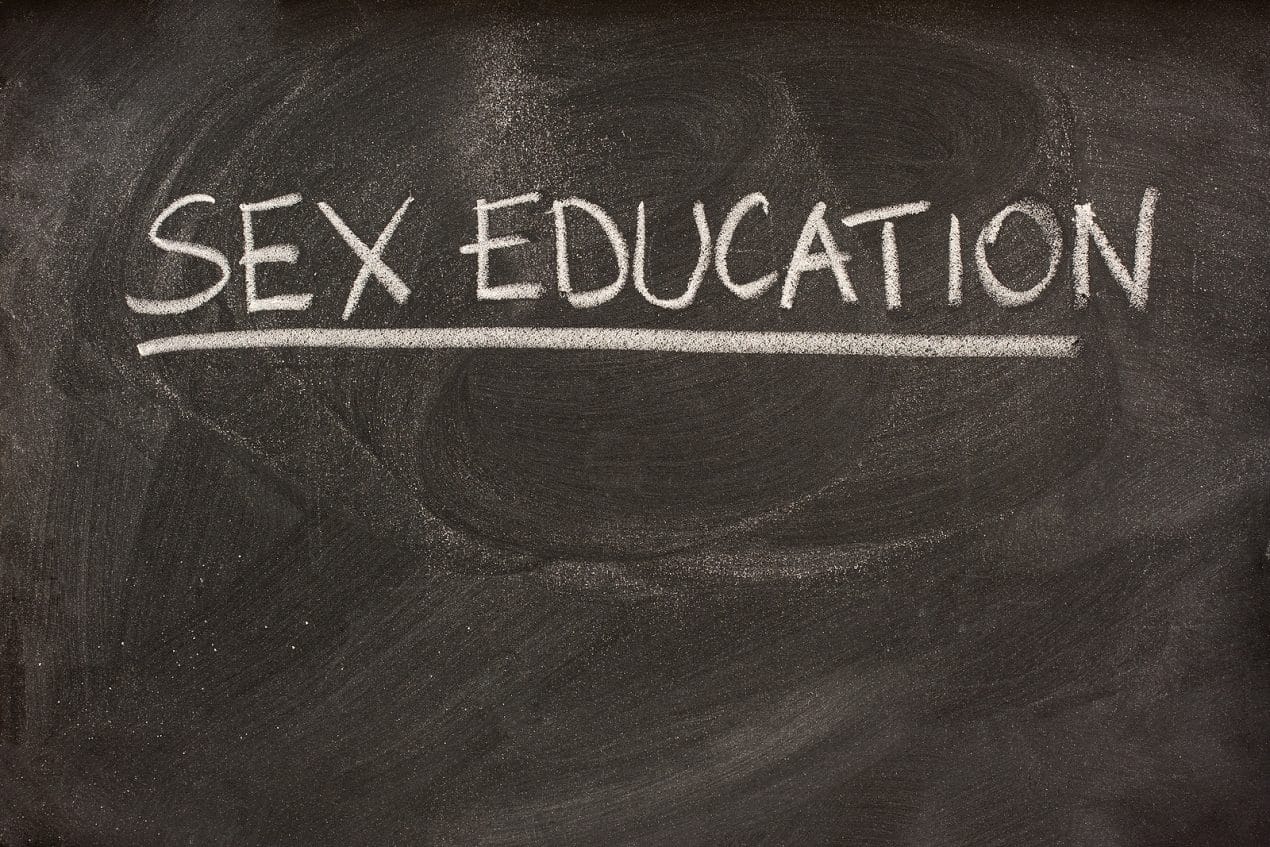
9 September 2021 – Autistic teenagers often receive poorer or less sex education than their neurotypical peers despite the fact they have the same desires as neurotypical teenagers when expressing their sexuality and gender identity, and engaging in sexual behaviours (Sala, Hooley, Attwood, Mesibov, & Stokes, 2019).
Reasons for this include being sheltered by worried or embarrassed parents, or because of the belief that they will not be interested in sexual or romantic relationships.
Autistic teenagers have both a need, and a right, to comprehensive sex education.
Getting proper sex education throughout adolescent years is fundamentally important to healthy sexual development, transition to adulthood, and can impact positively upon physical and mental health across one’s lifetime (Holmes, Strassberg, & Himle, 2019).
Parental anxiety
Many parents can be anxious when it comes to sex education because they have concerns that if their children receive sex education, they will be more likely to pursue and engage in sexual behaviours. In the case of autistic teens, parents often worry that someone will take advantage of them.
There is no evidence to suggest this is the case, and studies have shown that sex education leads to lower rates of unwanted teenage pregnancy, and a greater awareness of what sexual abuse and coercive behaviours look like (Sala et al., 2019). This education effectively reduces the likelihood of abuse happening or continuing to happen as teenagers are given the ability to recognise abusive behaviours, as well as a better ability to communicate this to their parents or other people.
Furthermore, good, comprehensive sex education makes individuals less likely to engage in sexually inappropriate behaviour (e.g., exposing private parts in public), and more likely to engage in sexual activities with partners in a healthy, safe way (Sevlever, Roth, & Gillis, 2013).
Why should parents be involved?
In addition to school-based sex education programmes, most young people also learn about sexuality and romance through their peer connections (Holmes, Strassberg, & Himle, 2019). However, because autistic teens may not have the same opportunities as neurotypical teens to learn from these sources, it makes parental education more important.
One challenge involved in delivering comprehensive sex education to autistic populations is how broad the spectrum of autism can be. Sex education needs to be positive, empowering, informative, and encourage self-determination, whilst also acknowledging the reduced capacity to consent or potential vulnerabilities for autistic individuals who may also be intellectually disabled.
What should I talk about, and how?
What to talk about and when will require a judgement call made by parents based on the social, emotional, cognitive, and physical maturity of their children, and their perceived needs (e.g., understanding periods and menstrual hygiene for teenagers that menstruate (Holmes, Strassberg, & Himle, 2019)). No one knows their children’s strengths and challenges better than their parents.
When teaching autistic teens about sexuality and relationships, it may be better to use a more targeted approach beyond simple discussion. Video modelling, social stories, social scripts, and visuals cues are some examples of things that can be used (Holmes, Strassberg, & Himle, 2019).
Potential strategies can range from low effort things like writing up some conversation topics that could be talked about on dates and making a calendar or diary to track menstrual cycles, to video modelling and rehearsal for how to say no and assert your rights and bodily autonomy when on the receiving end of unwanted sexual advances or contact (Holmes, Strassberg, & Himle, 2019).
Additional visual instructional materials, like pictures/drawings/diagrams, books and videos, can also help enhance discussion and foster understanding.
Children on the spectrum may need more time than neurotypical children to process the changes that come with puberty. Body changes that they cannot control can be scary, so talking about this topic early may help prepare them when they start to experience it for themselves.
Helpful resources on body changes:
https://researchautism.org/webinars/getting-and-giving-consent-for-people-with-autism/
Use of contraceptives like condoms or ‘the pill’ to prevent unwanted pregnancies, what the options are if an unwanted pregnancy occurs, and how to protect themselves from sexually transmitted infections should also be discussed. It is also important for autistic people to know about preventative health care topics, like breast exams, pap smears, and prostate exams, and that they are an example of okay private place touching.
There are also a higher proportion of LGBT (an initialism that stands for lesbian, gay, bisexual and transgender) sexualities and gender identities among autistic individuals which needs to be accounted for, supported, and normalised (Mogavero & Hsu, 2019). When delivering sex education to your child, it is important to teach it in an open and inclusive way, and not assume that they are heterosexual, cisgender, or uninterested in sex or romantic relationships. Conversely, it is also important to teach that some people are asexual or aromantic, meaning that they are not interested in sexual or romantic relationships, that this is okay, and that they should never feel pressured toward pursuing either of these things.
Private vs Public Behaviour
As teenagers go through puberty, they can develop a wide range of behaviours with romantic or sexual intent, including interest in sexual intercourse with another person, or solitary behaviours like masturbation or viewing pornography (Bush, 2019).
Masturbation is a natural thing that a lot of teenagers engage in. Many experts in the field of sex education for autistic teens have stated that masturbation should not be a thing that is shamed or discouraged. Instead, it is more productive to teach that masturbation is okay, but also a private behaviour that is inappropriate in most settings (Sala et al., 2019). This is an important thing to explicitly teach as engaging in private behaviours in public settings could also potentially lead to criminal charges if they continue into adulthood (Sevlever, Roth, & Gillis, 2013). These behaviours are most likely to occur due to a lack of social understanding or as a result of not having received adequate sex education.
Helpful resource for public vs private behaviours
https://researchautism.org/sex-ed-guide-public-private
Helpful resource for general sexual activity and terms
https://researchautism.org/self-advocates/sex-ed-for-self-advocates/
Dating and Communication
The quality of our relationships with other people can play a key role in our overall quality of life, and this is no different for romantic relationships. Research has shown that adult autistics in romantic relationships typically had a greater sense of social belonging and sexual wellbeing than adult autistics who are not (Mogavero & Hsu, 2019). This is not to say that anyone must be interested in having a romantic relationship with someone, but more to illustrate that this is an important part of many autistic people’s lives and happiness.
Despite this, results from a study conducted by Mogavero and Hsu (2019) showed that autistics had significantly less knowledge about how to initiate relationships, learned less about romantic relationships from parents, peers, the media, and social observation, and were less likely to currently be in a relationship compared to neurotypical peers. A lot of participants mentioned that they did not understand how relationships worked, and as such this made it difficult for them to know if they were engaging in, or on the receiving end, of unhealthy dating behaviours.
Adult autistics have also previously reported concerns about being able to find romantic life partners, as well as concerns about their own behaviours being interpreted as sexual when not intended (Corona, Fox, Christodulu, & Worlock, 2016).
Because of the difficulties with communication and social interaction that some autistic people have, there may be situations where miscommunications happen while pursuing romantic interests, or with their significant other during a relationship.
The difficulty in recognising social cues and the subtleties of flirting can sometimes lead to inappropriate courtship behaviours, like pursuing a relationship or a crush long after they have expressed that they are not interested (Mogavero & Hsu, 2019. This is not done out of malice or spite, but usually due to a misunderstanding or miscommunication, e.g., being subtly turned down but not being able recognise that the other person is not interested in dating. Nevertheless, this can sometimes lead to the person being pursued feeling harassed, or even stalked in some circumstances
As teenagers grow to adults, these circumstances become much more serious and could even escalate to legal trouble and charges (Mogavero & Hsu, 2019). It is therefore important to teach your teen how to recognise and accept a rejection during courtship, as well as how to say no when they are not interested in someone (Sevlever, Roth, & Gillis, 2013). Being able to recognise other people’s boundaries, as well as establishing your own, are key to building and sustaining relationships, and learning to how to respect your body, respect other’s bodies, and how to avoid being taken advantage of are particularly important parts of growing up (Mogavero & Hsu, 2019).
Many autistic people also experience sensory sensitivities so being able to communicate these things with potential sexual partners prior is an important skill to have (Sala et al., 2019).
Helpful resources for dating and consent:
https://researchautism.org/webinars/getting-and-giving-consent-for-people-with-autism/
https://researchautism.org/sex-ed-guide-dating-101
This brief article from Scarlet Teen, written by a disabled author Eva Sweeney, is a useful resource for discussing communication and consent with a nonverbal partner:
Cybersafety and Online Relationships
The internet plays a role in the daily lives of almost everyone on the planet. It is an invaluable information tool, and it also provides amazing opportunities for people to connect with other people from all over the world. It allows people to bond over shared interests or experiences, and for communities of like-minded people to find each other.
This is no different for the autistic community. In fact, in many ways it can be easier for some autistic people to find friendships or relationships online because it does not require face to face communication, reading of facial expressions, or verbal speech.
There is also a downside to digital communication. People can lie about who they are, they can cyberbully and harass others, or they can seek to sexually exploit minors. Learning to navigate online spaces safely is an important part of growing up today. Young autistics need to know what information to keep private, what kinds of things are and are not okay to search for, what is real and what is fake (e.g., pornography features actors and is not a realistic depiction of a healthy sexual relationship), and how to recognise potentially untrustworthy behaviour.
Final notes
There are tips in this article on topics to address, along with resources that may be helpful for you or your child to use when it comes to talking and learning about these topics. However, this article is not a substitute for a sex education programme or for advice from a medical professional. You may want to reach out to your child’s school to learn about their sex education programme, find out what will be covered in class, discuss your child’s specific needs, and if there is any way the programme could be better adapted or delivered for an autistic child.
- Ashe Yee – (B.A. – Psychology) – joined the Altogether Autism team as a researcher in late 2019. She graduated from the University of Newcastle in 2016 with a Bachelor in Psychology (First Class Honours).



